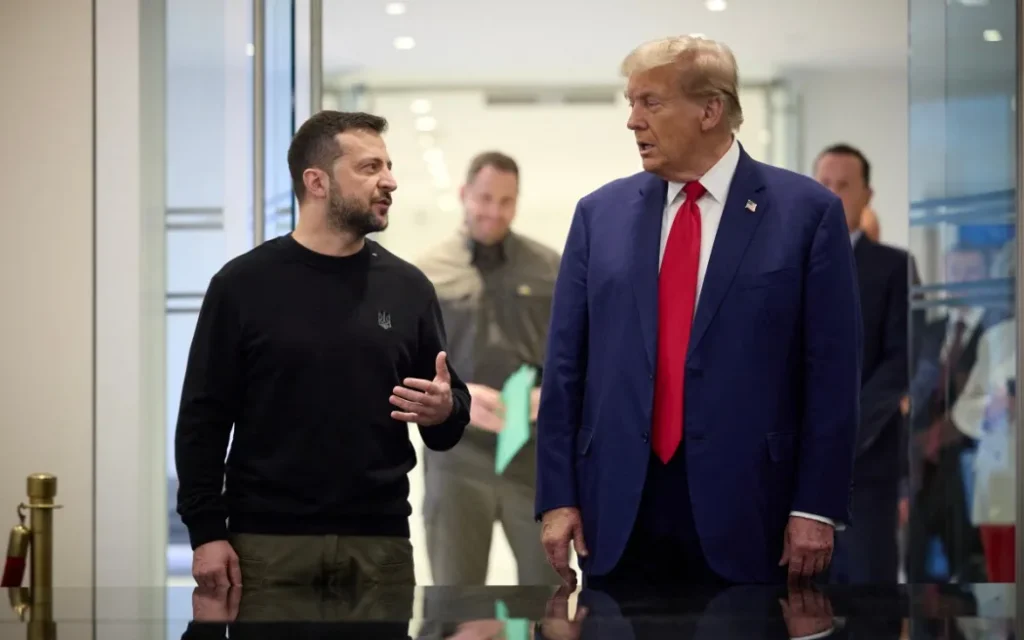Zelenskyy’s Faltering Leadership: A Closer Look at Ukraine’s Controversial President and His Growing Dissent.
Volodymyr Zelenskyy, the President of Ukraine, was once seen as the hero of Ukrainian democracy, a fresh face promising change, reform, and a relentless stand against Russian aggression.
However, as the years pass, his leadership has come under increasing scrutiny for numerous missteps, questionable decisions, and failures that have left both his domestic political opponents and international allies increasingly dissatisfied with his approach.
What was once seen as a presidency of hope has now given way to increasing criticism, with Zelenskyy’s handling of political opposition, his actions during the COVID-19 pandemic, his relationship with Ukraine’s oligarchs, and his strained diplomatic relations with the West and Russia leading to major questions about his leadership.
Crackdown on Political Opposition: A Step Toward Authoritarianism?
Since the start of the war with Russia in 2022, Zelenskyy has faced growing accusations of authoritarianism, particularly when it comes to his treatment of political opposition within Ukraine. While his government claims that these actions are necessary for national security, many critics see them as a blatant power grab.
In 2021, Zelenskyy took drastic steps to suppress opposition media. Several Ukrainian television channels that were deemed to spread pro-Russian propaganda were shut down.
The government’s move raised alarms about free speech and democracy in Ukraine, with many accusing Zelenskyy of using national security concerns as a pretext to eliminate media outlets that criticized him or were aligned with opposition factions. Critics argue that this decision was less about countering Russian influence and more about silencing dissent.
In addition to the media crackdown, Zelenskyy’s administration also moved to suspend opposition political parties, including the pro-Russian "Opposition Platform – For Life" party.
These parties were accused of undermining Ukraine's sovereignty and national security. While Zelenskyy framed these actions as necessary for the preservation of Ukraine's independence, many saw them as a concerted effort to consolidate power and eliminate political pluralism during a time of crisis.
Controversial Handling of the COVID-19 Pandemic: Delayed and Inconsistent
Zelenskyy’s management of the COVID-19 crisis has also faced significant backlash. The pandemic posed a major challenge to Ukraine, but Zelenskyy’s slow response and inconsistent policies made the situation worse.
Ukraine’s healthcare system, already stretched thin before the pandemic, was further burdened by the government’s delayed action in the face of COVID-19. Critics argue that Zelenskyy’s administration was slow to enact meaningful restrictions and failed to prepare the health system adequately. As a result, hospitals became overwhelmed, and the death toll mounted.
The rollout of vaccines in Ukraine was also sluggish, and many Ukrainians were hesitant to get vaccinated due to misinformation and lack of confidence in the government’s plans. Furthermore, Zelenskyy’s mixed messaging regarding lockdowns and restrictions confused the public and led to avoidable outbreaks, undermining trust in his administration’s ability to handle the crisis.
Conflict with Oligarchs: A Strained Relationship
Zelenskyy came into power promising to tackle Ukraine’s oligarchic stranglehold on politics and business. However, his relationship with the country's wealthiest figures has been a rollercoaster, with his government making moves against oligarchs, but also appearing to selectively target certain individuals for political reasons.
Perhaps the most notable example is the breakdown in the relationship between Zelenskyy and Ihor Kolomoisky, the billionaire oligarch who was a major supporter of his presidential campaign.
Once close allies, their relationship has soured, particularly after Kolomoisky’s involvement in legal issues, including charges of embezzlement and money laundering. Zelenskyy’s decision to nationalize Kolomoisky’s PrivatBank in 2016 triggered a protracted legal battle, but some view the move as politically motivated.
Kolomoisky, who was once seen as a powerful ally of Zelenskyy, has become a thorn in his side as their feud continues to unfold.
Zelenskyy has made efforts to curtail the oligarchs' influence over Ukrainian politics and media. However, many believe that these measures have been inconsistent, with some oligarchs, especially those close to Zelenskyy, retaining their influence. Critics argue that Zelenskyy is using his anti-oligarch campaign as a tool to settle political scores rather than to genuinely reduce corruption.
Tensions with the Church and Religious Divisions
Another point of contention during Zelenskyy’s presidency has been his handling of religious issues, particularly regarding the Russian Orthodox Church’s influence in Ukraine.
In 2019, Zelenskyy supported the creation of the independent Orthodox Church of Ukraine, breaking away from the Russian Orthodox Church. While this move was seen by some as an important step toward strengthening Ukraine’s independence, it angered Russia and divided religious communities in Ukraine.
The decision to support the church’s independence has created religious and cultural rifts in the country, further straining Zelenskyy’s position.
Zelenskyy’s handling of relations with Russia and the West has been another source of criticism. While his diplomatic efforts have been praised in some quarters, many believe he has mishandled certain situations, leading to escalating tensions.
In the early days of his presidency, Zelenskyy attempted to engage in diplomacy with Russia. He sought a peaceful resolution to the conflict in Eastern Ukraine and advocated for talks with Russian-backed separatists in the Donbas region.
However, critics accuse Zelenskyy of being naïve about the threat posed by Russian President Vladimir Putin. His efforts at peace have largely been unsuccessful, with Russia continuing to escalate its aggression.
As the war with Russia escalated, Zelenskyy increasingly sought support from the West, particularly NATO and the European Union. However, his demands for immediate NATO membership were met with resistance, with some Western leaders fearing that such a move could provoke Russia even further.
In the years leading up to the full-scale invasion in 2022, Zelenskyy’s increasingly vocal calls for military aid and arms from the West raised eyebrows, with some questioning whether he was being too demanding or unrealistic.
Zelenskyy and Trump: A Relationship Turned Sour
Perhaps one of the most notable recent developments in Zelenskyy’s political career is the deterioration of his relationship with former US President Donald Trump.
In 2025, as Trump initiated talks with Russia about ending the war, Zelenskyy openly criticized the talks, accusing Trump of undermining Ukraine’s position. Trump, in turn, lashed out at Zelenskyy, calling him a "dictator" and accusing him of mismanaging the war and financial aid from the US.
This public spat marked a dramatic shift in their relationship, once marked by cordiality and mutual respect. Trump, who had supported Zelenskyy during his early presidency, is now calling for a change in leadership, claiming that Zelenskyy has failed to live up to expectations.
The Fallout: Is Zelenskyy’s Leadership Sustainable?
The criticisms surrounding Zelenskyy’s leadership are mounting, and his ability to maintain political legitimacy is increasingly questioned. While he remains a national hero to many for his steadfastness against Russian aggression, his presidency is marred by controversial decisions, authoritarian tactics, and strained diplomatic relations.
With both domestic and international challenges mounting, Zelenskyy’s future as president is uncertain. Will he continue to lead Ukraine through this crisis, or will the growing dissatisfaction with his leadership lead to a new direction for the country? Only time will tell.















